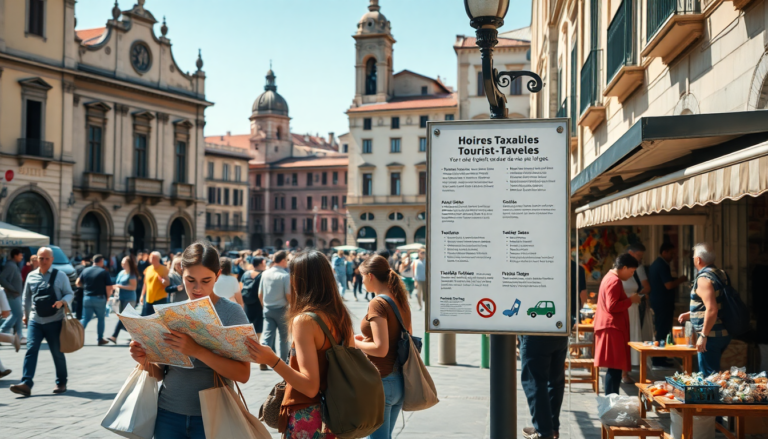Argomenti trattati
Imagine booking a dream getaway only to find that your travel budget has been significantly impacted by unexpected tourist taxes. As travel becomes more accessible, cities are adopting these fees to combat overtourism and sustain local economies. A recent analysis reveals which cities impose the highest tourist taxes, and surprisingly, it can change how you plan your next escape. Let’s dive into the details, shall we?
Understanding tourist taxes: what you need to know
Tourist taxes, often referred to as occupancy taxes or lodging taxes, can seem trivial at first glance—a few extra dollars tacked onto your hotel bill. But as many seasoned travelers know, these costs can add up quickly, especially if you’re planning an extended stay. For example, a modest nightly fee of £5 could morph into a hefty sum over a week-long vacation. Cities worldwide are increasingly adopting these taxes, and they vary significantly from one location to another. The rationale? Primarily to support local infrastructure, promote tourism sustainability, and enhance the visitor experience. I remember when I visited San Francisco and was taken aback by the nightly tax; it made me rethink my accommodation choices for future trips.
Top cities with the highest tourist taxes
In the quest for transparency, Holidu has compiled a list of cities with the highest tourist taxes globally. Starting with San Francisco, known for its iconic Golden Gate Bridge, visitors can expect a tax of approximately £6.86 (around €8.14) per night for average accommodations. This can be a rude awakening for those planning to stay a bit longer, as the costs can skyrocket.
Next up is Miami, a city synonymous with vibrant nightlife and stunning beaches. Here, the nightly tax is £8.04 (about €9.55), which contributes to enhancing the areas frequented by tourists. Then there’s Orlando, where the allure of Disney World and Universal Studios draws millions, with a tax of £8.10 (around €9.62) per night. As you can see, even the happiest place on Earth comes with its fees!
Europe’s presence in the tax game
Surprisingly, Amsterdam is the only European city to make the top ten list, charging £15.38 (approximately €18.26) per night. The city uses these funds to mitigate the effects of overtourism, a concern that many European destinations are grappling with. Just think about it: those picturesque canals and vibrant culture come at a price, and this tax is part of the strategy to keep the city sustainable for future visitors.
The implications of these taxes on your travel plans
It’s crucial to understand how these taxes can affect your overall travel experience. For instance, if you’re planning a week-long getaway to New York City, where the tax sits at £31.46 (roughly €37.35) per night, the additional cost can significantly impact your budget. That’s just over £220 for a week! In Washington, the capital city, the tax is £30.65 (around €36.39) per night, justified by the accessibility of numerous free attractions. Yet, as many know, these expenses can deter travelers, especially those on a tight budget.
But what about Los Angeles? With the highest tax of £31.78 (approximately €37.73) per night, many travelers might reconsider their itinerary. This fee stems from a 15.5% tax on short-term rentals, aimed at funding public services and promoting tourism. A savvy traveler might find that staying in nearby areas can save a few bucks.
Italian cities and their tourist taxes
Interestingly, Italy also features in this discussion, with cities like Milan, Rome, Florence, and Bologna imposing significantly lower tourist taxes compared to their American counterparts. Milan charges about £5.37 (roughly €6.38) per night, while Rome follows closely with £5.11 (around €6.07). For travelers, this could mean more gelato and less stress about hidden costs.
Final thoughts: planning your travel budget wisely
As travel enthusiasts, we often get caught up in the excitement of planning our next adventure. However, it’s essential to incorporate these tourist taxes into your budget to avoid any unpleasant surprises. Personally, I believe that understanding these costs can lead to better decision-making and ultimately a more enjoyable travel experience. So, the next time you’re mapping out your journey, take a moment to research the destination’s tourist tax—it could save you from a financial headache down the road.

